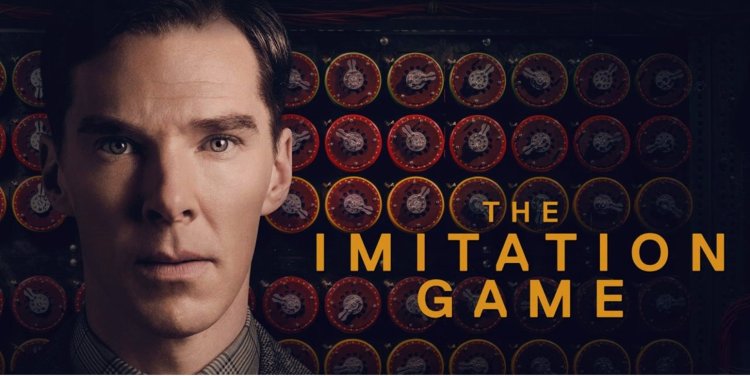The Imitation Game
The Imitation Game is a 2014 biographical drama film directed by Morten Tyldum and starring Benedict Cumberbatch as Alan Turing, a British mathematician who played a key role in cracking the Enigma code during World War II. The movie is based on the book "Alan Turing: The Enigma" by Andrew Hodges and was nominated for eight Academy Awards, including Best Picture, and won the award for Best Adapted Screenplay.

Plot Summary
The movie opens in 1951 with the arrest of Turing for homosexual acts, which were illegal at the time in the United Kingdom. The film then jumps back to 1939 when Turing is recruited by the British government to work at Bletchley Park, the site of the Government Code and Cypher School, to help decipher the Enigma code, which the Germans used to encrypt their communications.
Turing is shown as a brilliant but socially awkward mathematician who struggles to connect with his colleagues, but eventually earns their respect and admiration through his work on the Enigma machine. Alongside fellow codebreakers Joan Clarke (Keira Knightley), Hugh Alexander (Matthew Goode), John Cairncross (Allen Leech), and Peter Hilton (Matthew Beard), Turing works tirelessly to crack the code and help the Allied forces gain the upper hand in the war.
The film also portrays Turing's personal life, including his relationship with Clarke, and his eventual arrest and conviction for homosexuality, which led to his chemical castration and tragic suicide at the age of 41.
Themes
The Imitation Game touches on several themes, including the role of codebreaking in World War II, the importance of teamwork, the consequences of discrimination and persecution, and the impact of technology on society. The movie also explores Turing's struggle with his identity and sexuality, and the societal norms and prejudices of the time that led to his mistreatment and tragic end.
Historical Accuracy
While the film takes some creative liberties with the events and characters depicted, it largely stays true to the historical facts surrounding Turing's work and life. Some of the minor inaccuracies include the portrayal of Joan Clarke as a more significant contributor to the codebreaking effort than she was in reality, and the omission of other key figures in the Bletchley Park team, such as Dilly Knox and Gordon Welchman. However, the film's depiction of Turing's personality and struggles with his sexuality is largely based on historical records and interviews with those who knew him.
Acting Performances
The performances in The Imitation Game are outstanding, particularly that of Benedict Cumberbatch as Alan Turing. Cumberbatch expertly portrays Turing's social awkwardness, intelligence, and emotional complexity, and his performance is both captivating and poignant. Keira Knightley also delivers a strong performance as Joan Clarke, conveying her intelligence and determination, as well as her empathy and understanding of Turing's struggles.
Direction and Cinematography
Director Morten Tyldum creates a tense and atmospheric film that effectively captures the pressure and urgency of the codebreaking effort during World War II. The film's cinematography is also impressive, with striking visual imagery that adds to the emotional impact of the story.
Soundtrack
The Imitation Game's soundtrack, composed by Alexandre Desplat, is a beautiful and haunting score that effectively captures the film's emotional depth and complexity. The film's use of classical music, including works by Arvo Pärt and Edward Elgar, also adds to the film's emotional resonance.
Also Check Apple patent shows three gaming controllers
Conclusion
The Imitation Game is a compelling and moving film that effectively captures the story of Alan Turing and the importance of his work in breaking the Enigma code during World War II.




























